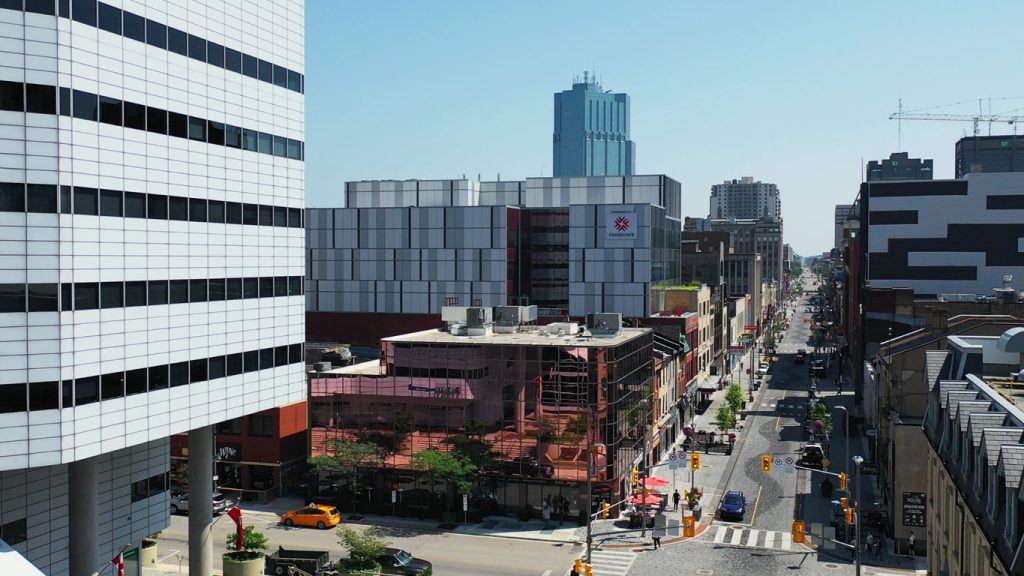In 2019, Fanshawe College embarked on a deliberate investigation to identify and support military-connected students throughout their post-secondary journey. This institutional investigation also coincided with an increased public awareness of Canadian Armed Forces (CAF) members, Veterans and their families. During the post-Afghanistan era, much societal attention was placed on the transition to civilian life and CAF Veterans’ well-being.
In 2018, Veterans Affairs Canada (VAC) announced a significant financial benefit for honourably released service members: the education and training benefit. This benefit significantly influences the education landscape for military-connected learners. In effect, the combination of increased attention and federal recognition for education assistance fuelled an institutional willingness to develop a synchronized strategy to support this emerging group of adult learners. This blog intends to increase awareness, leading to meaningful consideration of an underexplored group in post-secondary education.
Military-connected learners are those students with a tangible link to the CAF. They currently serve in the Regular Force (full-time) or Reserve Component (primarily part-time), are Veterans or are immediate family members of individuals who fit into the previous categories. To be more inclusive, Fanshawe College expanded this definition to include civilian members of the Department of National Defence and foreign military Veterans.
Military-connected students are a diverse group of individuals with different intersecting identities. Their real and perceived barriers to education can be amplified by their military connection. To achieve the desired outcome of combining prior military skills with recognized post-secondary education that leads to second career opportunities, Fanshawe College deliberately links the essential components of academic, student success strategies and social support.
At Fanshawe, the exploration of military-connected learners was underpinned by identifying the central elements of a customizable academic and social support framework. An environmental scan determined each student’s relationship with the CAF while looking internally at the functional components of the college. This approach helped the college view its services through a military-connected lens and enabled staff, faculty and administration to begin seeing military-connected learners as an underrepresented segment of the student body.
This preliminary analysis also highlighted numerous differentiators between traditional and military-connected learners. The cumulative effect of involving all aspects of the college structure directly contributed to generating institutional buy-in and fostering the organizational culture required to recognize this group of students. Fanshawe College deliberately sought input from staff and faculty where feedback loops ensured open communication across the institution.

Numerous studies (VAC, 2017; Van Til, 2017) have shown that the transition from military service is individual, complex and not linear. Unlike moving directly to a second career from military service, a post-secondary environment allows military-connected learners the occasion to experience the civilian world in an adaptable fashion. Fanshawe College recognized the potential of linking military experience with the completion of a diploma, degree or certification, thereby making the military-connected learner more competitive in civilian industry.
Enabling service members and Veterans to pursue post-secondary education in Canada is not a new concept; however, it is a subject area that has lacked academic interrogation for decades. By deliberately encouraging post-secondary institutes to investigate the potential of a military-connected approach, we are contributing to these students’ economic and career potential, which will benefit the local community.
Institutions may hold biases and internalize myths surrounding CAF service that may hinder their establishment of a military-connected strategy. To combat falsehoods and develop a shared understanding, Fanshawe College invested in staff and faculty development through workshops and informal sessions on topics such as mental and physical health, military sexual trauma, well-being, operational and familial challenges, and military culture. Several outcomes emerged. At the institutional level, there was greater awareness and knowledge of the CAF. Simultaneously, dedicated staff were trained to address military-connected students’ concerns, from college intake and academic advising to employment. By confronting misconceptions up front, the culture of Fanshawe College became welcoming and positioned to support this new group of students.
Education has a transformational role in one’s life – even more so as examined through a military-connected lens. CAF soldiers, sailors and aviators are trained to conduct peace, security and humanitarian operations across the globe, where approximately one-third of military occupations do not directly transfer to a civilian equivalent (MacLean et al, 2016). The Fanshawe College experience has demonstrated that military-connected learners enter a wide swath of programming, meaning that the student body is comprises those who want to accelerate their learning in a familiar field and those who are exploring new career paths. By developing a tailored military-connected strategy, Fanshawe College has created the conditions for business and industry in the local community and across the region to recognize the value of the lived experience of service members when coupled with post-secondary training.
At the heart of the military-connected college initiative at Fanshawe is the institutional willingness to address and provide tailored support for a previously unconsidered group of students. Fanshawe’s military-connected strategy remains flexible and adjusts its plan to sustain momentum. The desired effect is that barriers to post-secondary education are identified and addressed. Students must not be disadvantaged, and this tailorable organizational approach will positively shape the learning culture for years to come. The result is that military-connected learners are supported as they define their new career pathways. To learn more visit fanshawec.ca/military or releasepointeducation.ca
Veterans Affairs Canada. (2017, June 23). Military and Post-Military Employment and Income Outcomes. Life After Service Studies (LASS) Secondary Analysis. (Research Report No. V32-340/2017E ). Veterans Affairs Canada.




